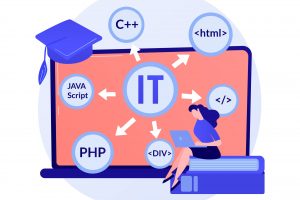
AI and Machine Learning: What Every Beginner Should Know
Artificial Intelligence (AI) and Machine Learning (ML) are no longer futuristic concepts—they are transforming industries, creating new career opportunities, and reshaping the way we live and work. From recommendation systems on streaming platforms to predictive analytics in healthcare, AI and ML are everywhere. For beginners, understanding the fundamentals is the first step toward leveraging these technologies for personal or professional growth.
What is Artificial Intelligence?
Artificial Intelligence refers to the simulation of human intelligence in machines. AI systems are designed to perform tasks that typically require human intelligence, such as problem-solving, decision-making, language understanding, and pattern recognition.
Types of AI:
- Narrow AI (Weak AI): AI systems that perform specific tasks, such as virtual assistants or chatbots.
- General AI (Strong AI): Hypothetical AI capable of performing any intellectual task a human can do.
- Superintelligent AI: Advanced AI with intelligence surpassing human capabilities (still theoretical).
What is Machine Learning?
Machine Learning is a subset of AI that enables systems to learn from data and improve over time without being explicitly programmed. ML algorithms analyze data, detect patterns, and make predictions or decisions based on insights.
Why ML Matters:
- Automates complex decision-making
- Improves efficiency and accuracy in various industries
- Powers innovations in healthcare, finance, transportation, and more
Basic Types of Machine Learning:
- Supervised Learning: The model is trained with labeled data to predict outcomes.
- Unsupervised Learning: The model identifies patterns in unlabeled data.
- Reinforcement Learning: The model learns by interacting with an environment and receiving feedback.
Key Concepts Every Beginner Should Know
1. Data is the Foundation
AI and ML rely heavily on high-quality data. Understanding data collection, cleaning, and preprocessing is essential to building effective models.
2. Algorithms and Models
Familiarize yourself with common algorithms such as linear regression, decision trees, neural networks, and clustering methods. Knowing how these algorithms work helps you choose the right approach for a given problem.
3. Programming Skills
Languages like Python, R, and Java are commonly used in AI/ML. Python, in particular, is beginner-friendly and has extensive libraries such as TensorFlow, PyTorch, and scikit-learn.
4. Evaluation Metrics
Learn how to measure model performance using metrics like accuracy, precision, recall, F1-score, and mean squared error. Proper evaluation ensures your models are reliable and effective.
5. Real-World Applications
Beginner-friendly projects such as image recognition, sentiment analysis, recommendation systems, and chatbots help solidify understanding and provide practical experience.
Practical Tips for Beginners
- Start Small: Begin with simple datasets and basic algorithms before tackling complex projects.
- Use Online Resources: Platforms like Kaggle, Coursera, and Oxelira offer tutorials, datasets, and hands-on exercises.
- Experiment and Iterate: Learning by doing is crucial—experiment with different models, parameters, and datasets.
- Join the Community: Engage in AI/ML forums, social media groups, and coding meetups to exchange knowledge and stay updated.
- Build a Portfolio: Document your projects and share your work on GitHub or personal websites to demonstrate your skills.
Applications of AI and Machine Learning
AI and ML are reshaping countless industries. Some common applications include:
- Healthcare: Predictive diagnostics, personalized medicine, and medical imaging analysis.
- Finance: Fraud detection, algorithmic trading, and customer insights.
- E-commerce: Personalized recommendations, customer segmentation, and demand forecasting.
- Transportation: Autonomous vehicles, route optimization, and traffic prediction.
- Entertainment: Content recommendations, gaming AI, and creative tools.
AI and Machine Learning are transformative technologies with enormous potential, and understanding the fundamentals is the first step toward leveraging them. Beginners should focus on learning programming, exploring algorithms, practicing with real datasets, and building projects.
At Oxelira, our AI & Machine Learning Essentials course provides hands-on learning, expert mentorship, and real-world projects to help beginners gain confidence and practical skills in AI and ML.
Start your AI journey today and explore the technologies shaping the future!



